I Asked Teachers to 'Tell Me What You Really Think'.
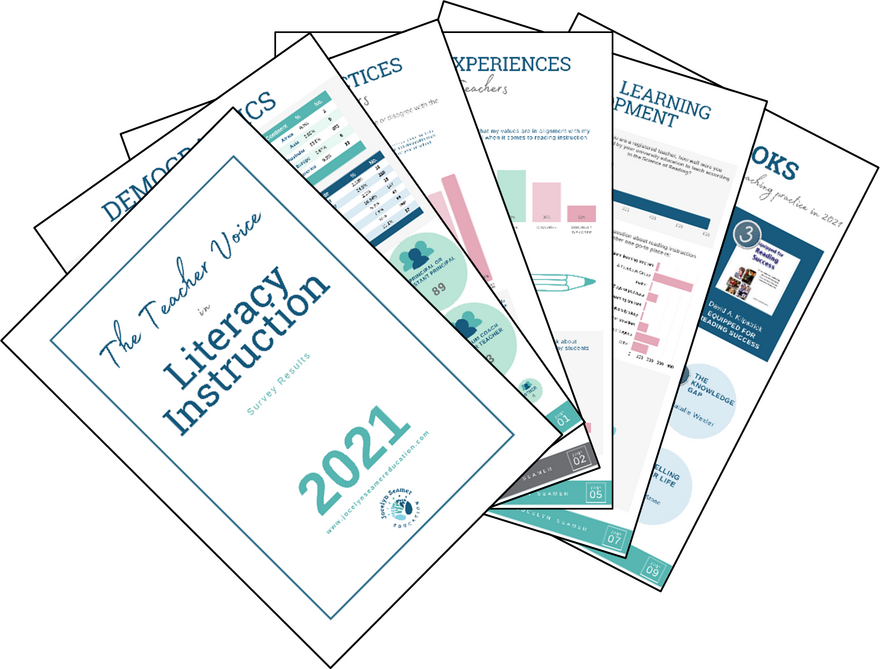
This week I released the summary report from the 2021 Teacher Voice in Literacy Instruction survey.
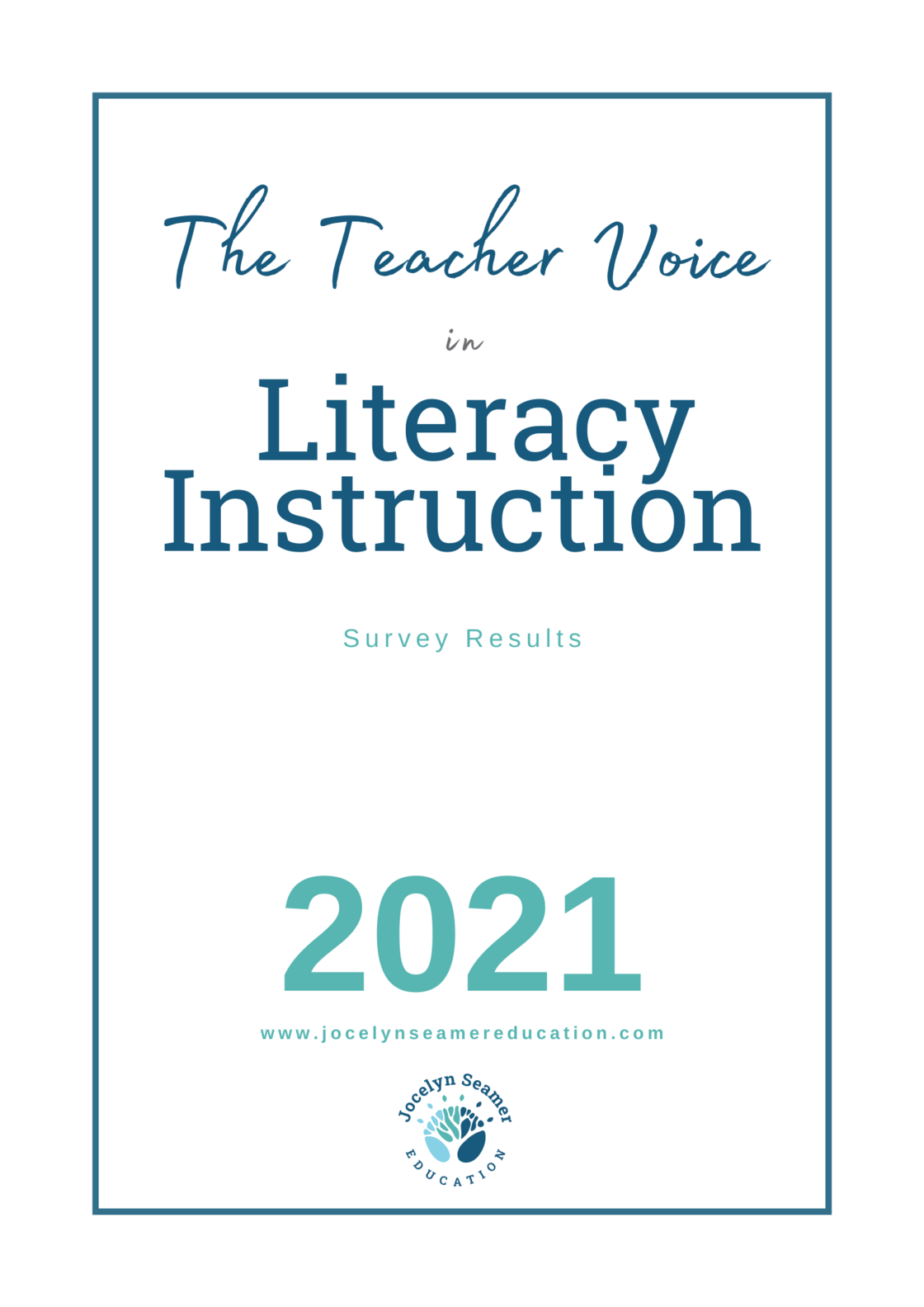
The survey had two purposes:
- To give teachers the chance to have their voices heard
- To take the temperature on current classroom practices
Despite the informal nature of the survey, I think we have done that.
The survey summary report released this week draws no conclusions about what the data means for us and our schools, but today I would like to share my thoughts (and dare I say, opinions) on some of the results.
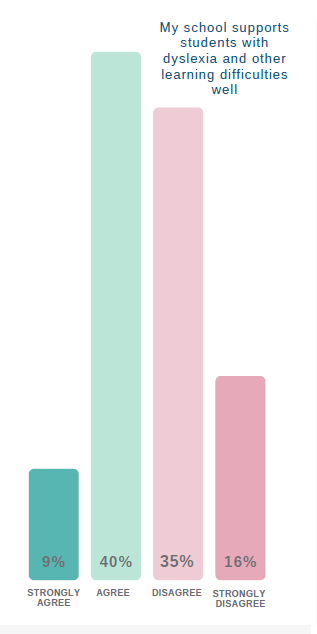
51% of teachers said that they disagreed or strongly disagreed that their school supports students with dyslexia and other learning difficulties well.
For parents of students with learning difficulties (some of whom are teachers themselves), this is not good news and is also not surprising. It is also equally frustrating for those teachers who have a strong understanding of structured literacy instruction but are not supported by their school’s systems to provide it within a response to intervention approach. Supporting students who struggle is a whole of school undertaking. It is not something we ‘tack on’ to our core business. It is embedded in the way a school teaches reading rigorously and explicitly. Providing instruction that supports all students takes resources (both people and physical), intentional and explicit teaching across all classrooms and an unwavering commitment to implementing strong Tier 1 instruction that is supported by effective Tier 2 intervention. It is not generally teachers who make the key decisions to make this happen across a school.
These numbers are reflected in the responses to the statements:
- I feel that my values are in alignment with my school when it comes to reading instruction (only 58% agreed or strongly agreed)
- I purchase my own decodable texts to make up for my school’s lack of resources
(47% agreed or strongly agreed)
To go to work every day and experience misalignment between yourself and your school, in such a vital area of our work, is hard and tiring. For all teachers for whom this is the reality, I want to say, thank you for your ongoing commitment to your students. What you do makes a difference so keep putting one foot in front of the other.
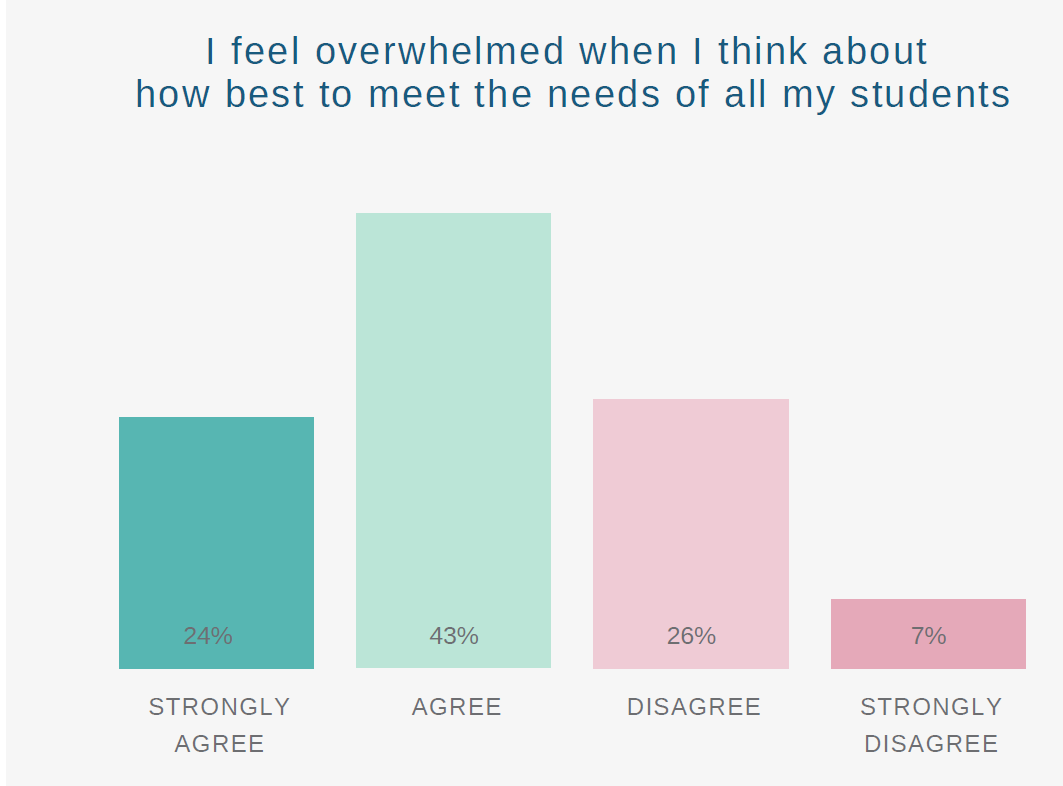
67% of respondents said that they feel overwhelmed when they think about how best to meet the needs of all of their students.
My own thoughts on that go something like this:
- Asking one person to deliver instruction that effectively meets the needs of 25 (or more) students with vastly different levels of reading development on their own sets that person up for difficulty. In most classrooms, someone is going to miss out.
- Asking that same person to do so in a way that does not result in a loss of instructional time for any students and to do so without the support of effective tools sets that person up for failure.
- Asking teachers to use outdated methods of instruction such as sight word programs, levelled texts and traditional guided reading groups creates a point of tension for teachers that, for some, is simply crushing.
Now, it is impossible for me to ascertain whether the respondents in the survey have the above expectations in their current schools, but it is certainly the experience of many teachers I talk with online and inside my courses. Many feel that they are fighting against their own workplace when they want to bring structured literacy to life.
In the face of this level of overwhelm, it comes as no surprise that 88% of respondents said that they want a step-by-step program to help them teach reading. In my experience, teachers don’t want to have the thinking and decision making taken out of the equation. They don’t want to abdicate their responsibility for providing instruction. What they do want is simple, effective tools that arrange content, reduce their cognitive load and make planning manageable so that they can concentrate on their students.
Finally, I would like to unpack a little bit about what teachers have reported as helping and hindering them to move the needle on evidence informed literacy instruction.
It will come as no surprise to you to read that an overwhelming majority of respondents indicated that their university education did not prepare them at all to teach according to the Science of Reading. The work of Pam Snow, Tanya Serry and Lorraine Hammond in this space is so very important (apologies to others who I have missed). I look forward to the day when every teacher exits their degree with a strong knowledge of the science of reading and learning.
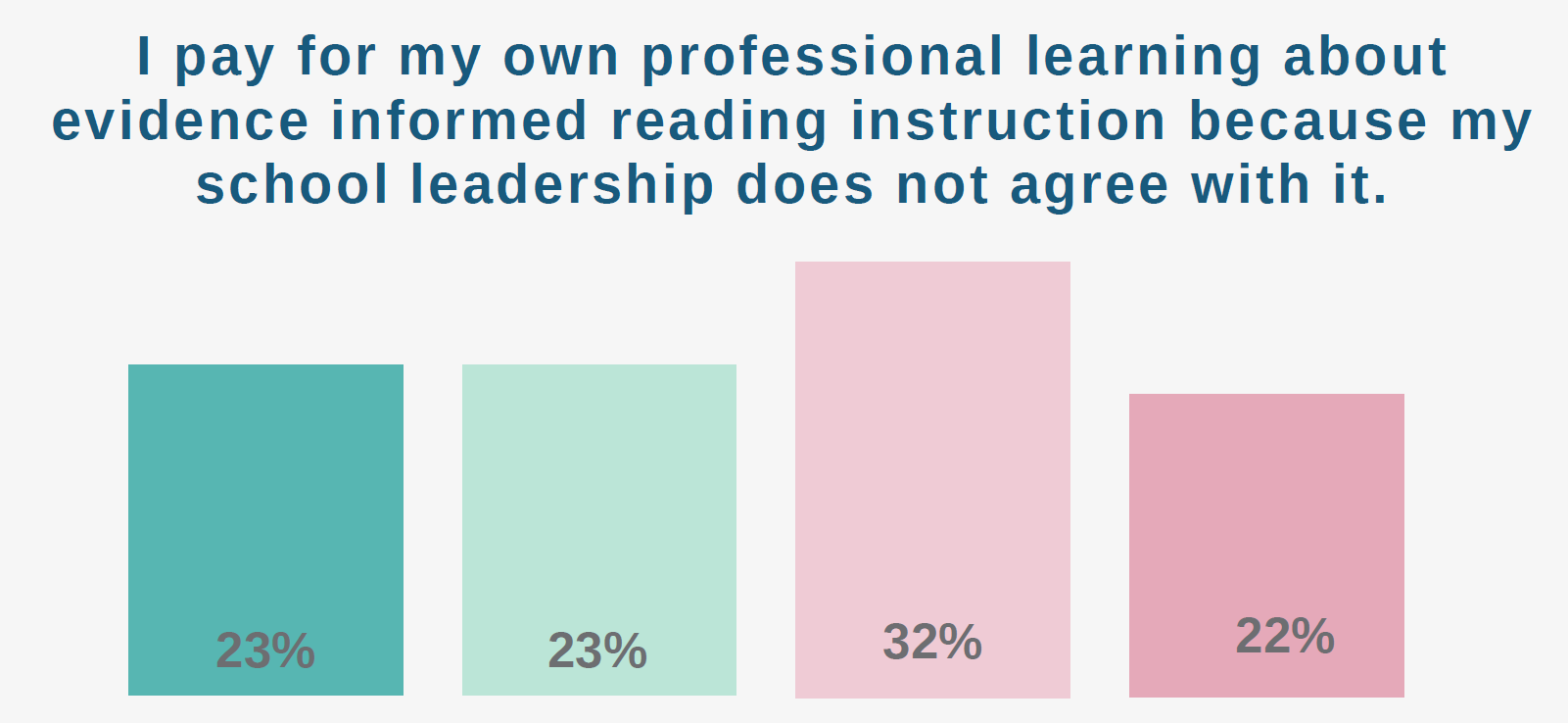
46% of teachers responded that they paid for their own professional learning about evidence informed literacy instruction because their leadership does not agree with it.
The item that rated the highest number of responses to the statement, “The thing that has been the most helpful to me in developing my teaching in evidence informed instruction...” was professional development.
When asked where they go when they have a question about reading instruction, teachers reported A Facebook Group and Colleagues as being the two top responses. Their school or jurisdiction’s internal professional learning programs barely rated a mention. Our professional bodies who are supposed to help us champion teaching and children did not receive a mention at all.
What does this tell us? For me, it highlights that while there are a growing number of principals driving and actively supporting the change process in their schools (and I am privileged to work with some of them in my current role), there are also many teachers struggling with the challenge of leadership who actively oppose a shift in practice.
The number one response to the statement, ‘the thing that is preventing my school from moving forward in evidence informed literacy instruction…’, was mandated practices that are not evidence aligned.
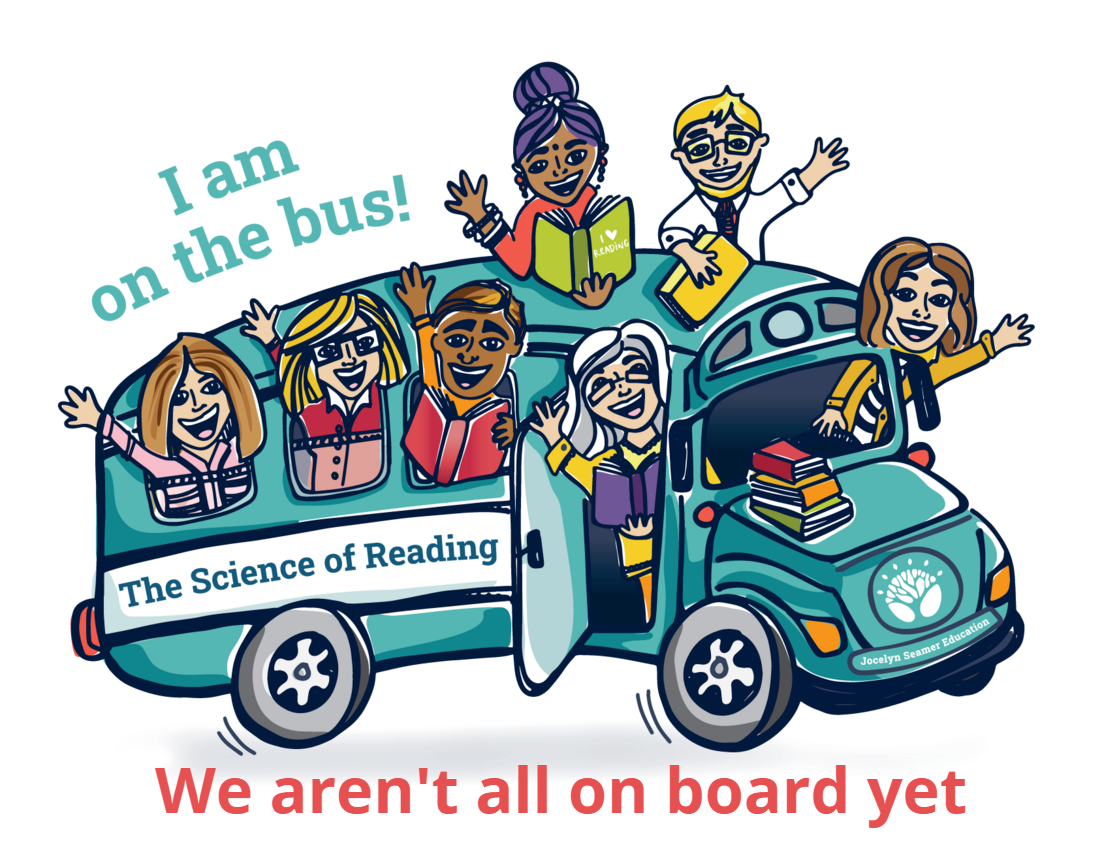
This is not to suggest that every teacher is on the Structured Literacy Bus or that every principal is not. What I can say, from the feedback and discussions inside my courses and groups, is that a significant number of us feel the stress of that misalignment that I spoke of earlier in this post. For teachers in that boat, this is part of the overwhelm they experience in their working lives. It is also important to remember that leaders need support too. I would hazard a guess that there are school leaders out there who are open to change but are feeling that same level of overwhelm as their teachers. Becoming a leader doesn’t magically make you all-knowing or equipped to handle everything that comes your way. This is especially true when you’ve been thrown in the deep end with little training (I’ve certainly been there!) and are trying to steer your school through COVID, teacher shortages and the fact that you don't feel that you can talk openly about structured literacy at your principal's business day for fear of jeopardising your career.
Not every response in the survey was negative. Many teachers reported that they were supported by their leadership and that their leaders were knowledgeable about evidence informed instruction. Many teachers provided statements indicating their leadership and colleagues were all on board and getting great results. I hope to see more of this over time. I think that it is also important, when interpreting these results, to remember that the survey distribution did not cover every teacher or necessarily reach a large number of teachers who are ‘not on the bus’. If we could survey our whole profession, we may find very different results.
I would like to thank the nearly 1000 respondents for their time and candour in completing the survey. As you move forward throughout the rest of 2022, please remember that what you do in your classroom and school matters. You matter. In terms of being part of the big picture of change, it is through working with compassion and in being open to creating connection that we will get the best results for students. Ultimately, they are the ones we are advocating for in our quest to grow and shift practice.
If you would like to view the full report (we’ve kept it simple, I promise), you can find it below.
2021 The Teacher Voice in Literacy Instruction Survey.pdf
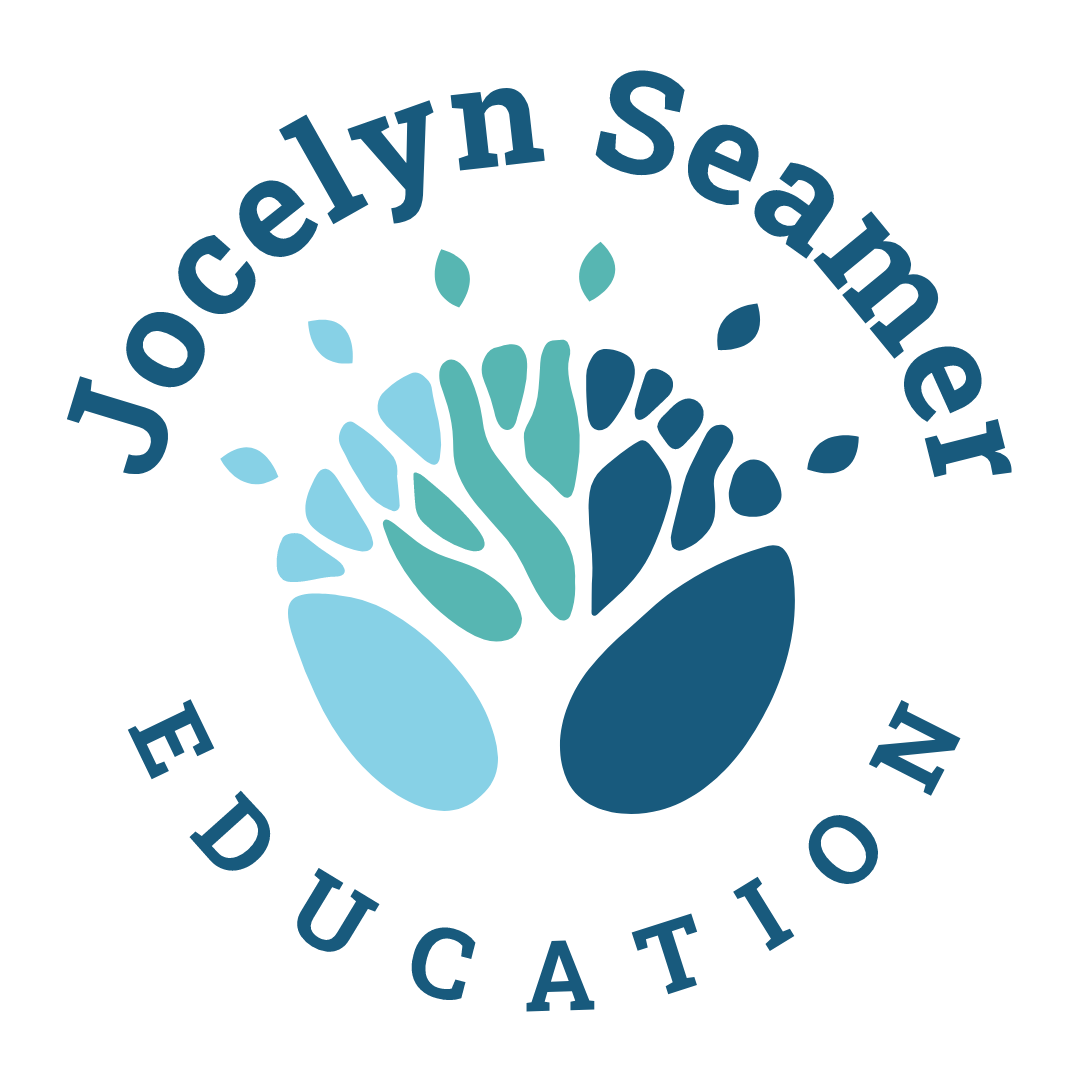
 Jocelyn Seamer Education
Jocelyn Seamer Education
5 comments
Facilitating whole school change can feel like trying to stop the tide coming in! Without whole school system support it can be crushing over the long term…. Thanks so much for this blog Jocelyn!
I hear you loud and clear, Elaine. We just have to keep fighting the good fight and hope for the best. 🙂
I love your leadership and how you are supporting so many teachers working to shift to a structured literacy approach. In NSW, I am hoping the new syllabus mandated in 2023 will further support this shift. I am fortunate to be teaching in a school where my principal was looking for a person who was passionate about the Science of Reading and evidence based practice. I feel that I am able to really explore, try new thing and this learning is celebrated. Jocelyn you are supporting and encouraging so many of us who are on the bus and passionate about it. We are fortunate to have been provided with your warmth, love of children and passion for all things reading.
Thank you for sharing our voices. I am crushed. I’ve been on stress leave due to the immense pressure I feel to go against what I believe to be true. I’ve lost all faith in my ability to teach. I’ve been hounded by leadership, had executives come and talk to me about following the whole school philosophy, rather than SOR. I have been questioned by CRTs why I am not doing guided reading and more. I decided I’d try and do both, so that I ticked their boxes and also gave the children the best opportunities. I just can’t fit it all in and don’t know how.
We could have our own 'Me Too' movement in education, sadly. Survey results were very reflective of what's happening currently.
Leave a comment